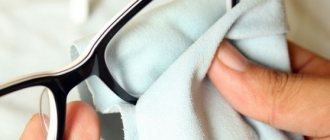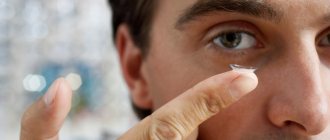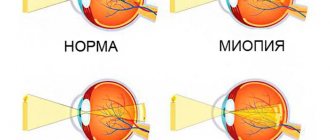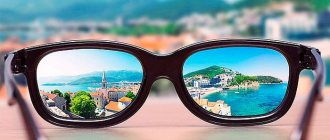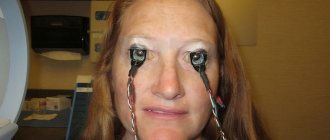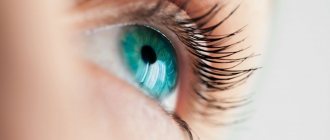Traditional methods for preventing glasses from fogging
Folk recipes are simple and accessible, but have their own nuances. Here are the most popular:
In this article
- Traditional methods for preventing glasses from fogging
- Tips for caring for foggy glasses
- Professional anti-fog glasses
- A piece of solid soap. The lenses of the glasses are rubbed with a dry piece of any scented soap, then the applied mass is evenly distributed over the lens with a soft cloth, while drying the glass (minus - it is difficult to apply an even layer, so the view will deteriorate on rainy days);
- Shampoo. Add warm water to the hair wash in a ceramic bowl in a 1:1 ratio and mix thoroughly until a homogeneous mass is obtained; then the solution is applied to the glass with a piece of clean soft cloth, and wiped dry with another dry cloth (this may leave barely noticeable rainbow stains, which will contribute to the appearance of glare and make it difficult to see);
- Spray for car windows. It is enough to spray it on the inner surface of the glasses lenses and wipe dry (you should remember that auto chemicals are not intended for people; it is undesirable to use such dangerous products);
- Glycerin (liquid). A soft cloth is generously moistened with the solution and the glasses are thoroughly rubbed on both sides, then the glasses should be allowed to dry naturally, and then polished with a dry soft flannel cloth (this method of combating glass fogging takes a lot of time);
- Toothpaste. Squeeze out 1 pea on both glasses from the inside and rub thoroughly with a napkin; after drying, the remaining paste is removed with a soft cloth (however, it is very difficult to clean glasses of dried toothpaste without damaging the surface of the glass);
- Shaving foam. Apply to glass with clean fingers and wipe with a dry cotton pad until completely dry (this method is the least effective due to the texture of the foam being too soft).
All folk remedies are free of charge, because they are available in any apartment, but the above methods are quite time-consuming. Various detergents often have to be reapplied to the glass, after first removing the previous layer of soap or shampoo. It is also inconvenient that mixed solutions of detergents and water cannot be stored; the ingredients will need to be mixed in accordance with the proportions before each application. Folk recipes are quite applicable as a one-time use when the glasses in your glasses fog up and you need to quickly take at least some action.
What not to do?
Glasses are a very capricious accessory. It is recommended to wipe it with a special microfiber cloth. As a rule, when it is not at hand, clothes are used. Rough clothing can scratch the surface and also remove special coatings from glasses. Most often, an anti-reflective layer is applied to the surface of the glasses - it is the first to be damaged, and scratches on the optics can cause enormous discomfort to the wearer.
Under no circumstances should you use anti-fog chemicals that were originally intended for mirrors, car windows or home use. At best, aggressive components can harm fragile optics; at worst, these components can harm the visual organ and the human body.
Tips for caring for foggy glasses
In fact, the fight against fogging of glasses begins at the stage of purchasing an accessory, be it glasses with or without diopters. It is important to remember that high-quality glass is less susceptible to condensation accumulation, so you should not save money and purchase products from a “gray” manufacturer. It is also necessary to use glasses correctly so that they do not fog up.
How to prevent your glasses from sweating:
- Store the accessory in a special case;
- Try, if your eyesight allows, to wear glasses only indoors, and do without them outside in the rain and frost;
- Wear glasses as close to your face as possible so that condensation from breathing in cold weather does not settle on them;
- Have a soft cloth with you (you can use a special cloth for glasses or a cloth for treating LCD monitors) to carefully remove condensation as needed;
- Try not to touch the glass with your hands to avoid contact between warm fingers and cold glass.
Under no circumstances should you wipe glass lenses with a rough cloth or improvised means when the lenses in your glasses fog up: microscopic scratches will remain on the surface of the glasses, and visibility will be reduced.
What if shaving foam doesn't work?
Although any shaving foam, even the cheapest one, is suitable for applying the film, the result may not fully meet your expectations. In this case, you can resort to using liquid hand soap. The soap also contains surfactants, which leave a protective film invisible to the eye that prevents the lenses from fogging up when moisture gets on the surface of the glass.
We have also already written about how it is advised to wear a mask to prevent your glasses from fogging up.
For example, putting glasses on top of a mask or folding its upper part in a special way. You can read more about this in our materials: See also
How to wear a mask to prevent your glasses from fogging
See also
People online shared ways to wear a mask to prevent your glasses from fogging up.
Cover: 1GAI.ru
Professional anti-fog glasses
All solutions that help minimize the formation of condensation on glass lenses of glasses are divided into 2 types:
- Hydrophilic - solutions, the thinnest film of which partially absorbs moisture and distributes it evenly across the glass, promoting the fastest and most comfortable evaporation. However, if in a short period of time the glass has to experience temperature changes several times (for example, if you make several transfers on the way to work, getting from warm transport to a cold street and back), then the glass may become covered with a thin icy crust.
- Hydrophobic - solutions that repel moisture: after treatment, the smallest droplets flow off the glasses, leaving no traces, at the same time, less dust and particles of tobacco smoke settle on the surface of the glass lenses, making the care of glasses much easier.
Hydrophilic solutions are ideal for treating glasses of car enthusiasts and athletes, for example, for treating swimming goggles; and hydrophobic ones are for people who often face temperature changes during the cold season.
It is recommended to treat glasses glasses with special solutions in advance, about 1 hour before leaving the house (or better in the evening), and there is no need to remove the previous layer. An additional advantage is that the solution is convenient to carry with you; you can use one bottle throughout the entire shelf life without compromising your health.
What is better: folk advice or professional anti-fog glasses can only be decided by the consumer himself, having checked all the options in practice.
Why do glasses fog up from a physics point of view?
The “fogging” effect occurs even with a slight decrease in the air temperature outside. For this, +5-10°C is enough. What causes lenses to fog up? Let us note the main reasons:
- Sudden change in temperature . In winter, the air temperature in any room is warmer than outside. When you come in from the cold, cold lenses “meet” warm air. Water vapor from warm air settles on the surface of cold lenses in the form of small drops. Condensation forms.
- The lenses fog up on their own . When you are in the cold, the lenses become cold, and the warm air you exhale rises. Again, temperature differences and fogging occur.
- Fog . With high air humidity, condensation on the lenses will form not only indoors, but even outdoors.
How to use the product
Apply a drop of dishwashing detergent to each glass lens.
Rub the glass with your finger, as if rubbing the liquid into the surface of the lens.
Winter holiday with husband and children. Marina Alexandrova showed rare family photos
Postponement of releases, disruptions in filming and more: how 2021 hit the film industry
A woman showed how to make round ice for drinks. Need a tennis ball
Then wipe the glasses with a regular soft cloth.
How to treat glasses so they don't fog up?
If you are not attracted by the prospect of constantly using improvised means and wiping lenses during sports, then you should familiarize yourself with the most well-known ways to combat this problem.
Soap
You can use a dry bar of soap. Its color, smell and other characteristics are not important. It is necessary to apply several stripes on the lenses . If a piece of soap is too old and too dry, you can moisten it a little in water. Alternatively, you can use a soap solution. The glasses are washed thoroughly. Then they are laid out on the surface and dried. Next, everything is thoroughly wiped with a dry cloth or napkin. As the procedure progresses, a thin water-repellent film forms on the lenses.
Liquid soap
To treat with liquid soap, you will need a cotton pad and a drop of product. Soap is applied to the lenses and wiped dry with a cotton pad . Instead of a cotton pad, it is permissible to use a small piece of flannel fabric.
Glycerin
A good way to combat fogging is to use liquid glycerin. Glycerin must be warmed to room temperature and applied to flannel fabric . Next, the glasses are thoroughly wiped and left to dry. After drying, the glasses are wiped again, but with a dry and clean cloth.
Toothpaste
A pea-sized amount of toothpaste is applied to the lenses and then wiped dry . It is worth noting that the paste is very difficult to wipe off after drying. This method is very labor-intensive, but if there is nothing else at hand, it can help out.
Antifog
If you do not want to spend time treating your glasses using traditional methods, then today there is a huge range of anti-fogging products available for sale. For example, Antifog is a special product for reducing the attraction of water molecules and creating a kind of film on a glass surface. You just need to apply Antifog to the inner surface of the glass, rub thoroughly until it dries completely . Available in the form of several products - liquid, spray, wet wipes.
